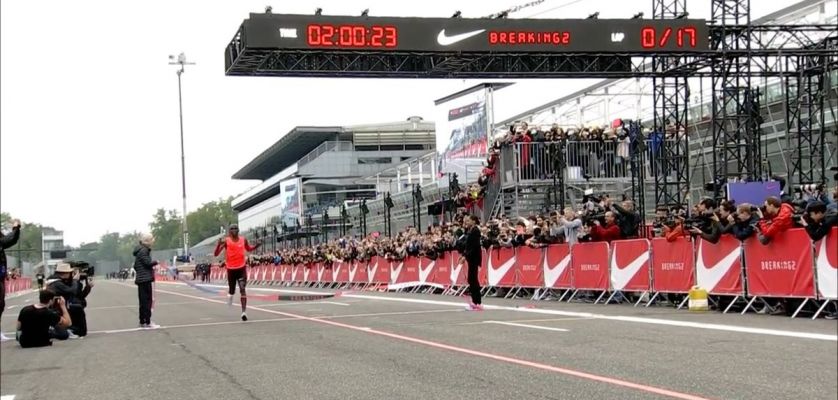I'm not going to talk about whether Kipchoge' s shoes were regulation or whether there was material doping when he tried to go under two hours in the marathon. Nor am I going to talk about whether or not the car ahead of him, marking the pace with a red laser, was taking the wind out of his sails. And I will not comment anything about running in a group, with people who are setting the pace and hares that are pulling. Homologable, not homologable? I will not go into that subject either. Are all these topics interesting? I am sure they are, but I want to talk about something else.
I want to talk about...
There are scientists who have already fixed the limit of the human body, the speed with which one can run a marathon. They have categorically stated (for example, Michael Joyner) that it will NEVER be possible to go under 1 hour, 57 minutes, 58 seconds. And those who say so are recognized and prestigious doctors, who know what they are talking about.
A few weeks ago, in these same pages, you could read a post I wrote referring to Bannister and his record in the mile, lowering the "insurmountable" wall of four minutes. And how it affected the runners of his time, who in a few months were also able to break that record, unattainable just a short time before. The medicine of the time categorically stated that the human body was not physiologically prepared to go under four minutes in the mile distance. Bannister did and today, the mile record stands at 3:43:13 (el Guerrouj).
That is to say; in a few years, the insurmountable physical limit had been broken by almost twenty seconds.
Now the two-hour limit is almost broken. Regardless of the aids of running in a group, the car and all that. And even if it has not been achieved, is there anyone who has any doubt that it will be achieved, and that it will be sooner rather than later. I think that this test and especially for having failed and being so close to the record has awakened the HUNGER to achieve it.
Breaking the barriers
We are nonconformists, very nonconformist. We are hungry to break the limits, to go where no one has gone before. There are people who want to get out of their comfort zone, who need to challenge themselves.
When we hear about challenges, new challenges, pushing the limits, we automatically think of elite athletes. In this case, trying to go under two hours in the marathon.
But if we are able to abstract ourselves from the stratospheric records, world records, futuristic technology in the materials used, if we are able to take a step back and see it in perspective, we will realize that it boils down to one thing: the desire to improve, the desire to surpass oneself, the illusion of overcoming limits... in a word, the hunger to go beyond.
And that is within the reach of all athletes, both professional and popular. For those who make a living from sport and also for those who take time out of their daily lives to put on their running shoes and run.
For Kipchoge, trying to break the two-hour barrier meant going into uncharted territory. Making the decision to take on a challenge he had never achieved before, forcing him to give the best of himself, to overcome his fear of failure, to step out of his comfort zone, to push his limits, to change his diet, his training system....
Set your own limits and you have a challenge?
All these ideas, worries, nerves, uncertainty are exactly the same as those that any of you can experience, or do you not think that a person who has only run 10 km races, for example, and decides to participate in a half marathon, will not find it hard, will not be nervous not knowing what might happen or how his body will react during the race? This runner is also going to travel unexplored paths for him.
A few weeks ago I had the opportunity to give a talk on sports coaching and sports performance. Most of the participants (almost all girls) were going to participate in just a couple of weeks in their first half marathon. And I can assure you that the questions they asked, their concerns, their nervousness, their excitement to participate and finish, the uncertainty that surge when we face something we have never done before, era very similar to that of professional athletes. They were going to do something they had never done before; they were going to break their ceiling and they didn't know if they would make it.
When we set ourselves a challenge, we have to measure it and evaluate it in terms of how much of an improvement it is over what we had already achieved.
Challenges are not small or big in terms of the distance we are going to cover or the time it will take us. The importance of our challenge is a function of the size of our fear. Dare and beat it. You too can beat a record!!!!
Aitor Loizaga I www.coachingsinlimites.com I Twiter: @aloizagacoach
Read more news about: Running Training





























